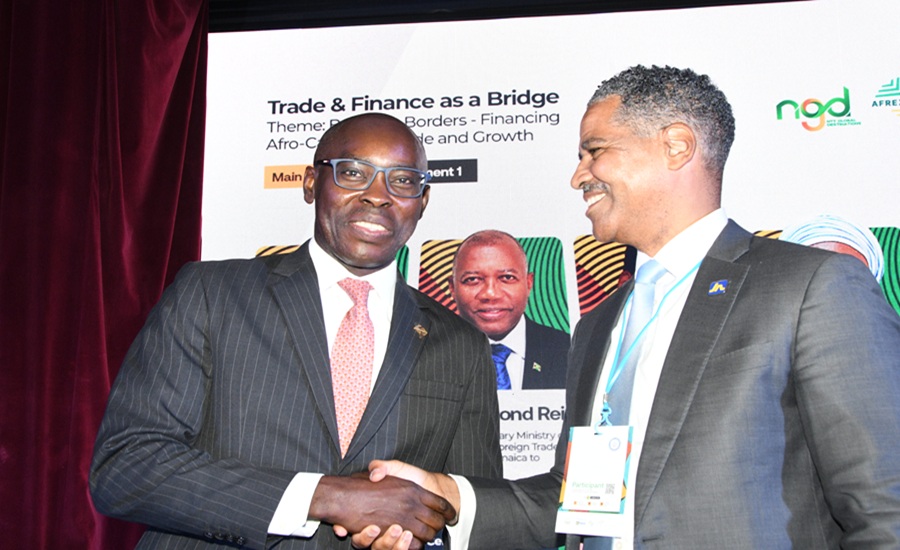African governments are silencing citizens under the pretext of COVID - Farida Nabourema warns
The Afrobarometer 2025 report, themed Citizen Engagement and Citizen Power serves as a mirror
Human rights advocate Farida Bemba Nabourema has sounded the alarm over the growing erosion of civic space across Africa, accusing governments of using COVID-19 as a pretext to crack down on citizen freedoms and stifle dissent.
Speaking at the launch of Afrobarometer’s 2025 flagship report on citizen engagement on July 8, 2025, Nabourema warned that authoritarian practices are on the rise, threatening democracy and civic participation across the continent.
“Protests have been banned in my country since 2020. Even press conferences are not allowed. COVID provided governments the perfect excuse to consolidate power and silence citizens,” Nabourema, Director of the Katutu Civil Rights Center, told participants at the event.
She stressed that while the pandemic may have initially justified emergency measures, many governments have refused to roll back restrictions long after the health crisis ended.
“Political parties are still not allowed to hold meetings.
“This is not about citizens disengaging it’s about governments systematically deploying resources to crush civic engagement,” she added.
Sy Mamabolo, Chief Electoral Officer of the Electoral Commission of South Africa, called for deeper decentralisation of governance.
“We need to bring our best talent not only to the national level but to local government, where real community interaction and development happen,” Mamabolo said.
He underscored the importance of empowering local authorities to champion citizen engagement.
Audrey Gadzekpo, Emeritus Professor of Communications and Board Chair of CDD-Ghana, acknowledged that while protest culture remains low among African youth, there is still hope.
“The data shows low levels of protest, but I draw hope from research,” she said, encouraging continued efforts to inspire youth involvement in democratic processes.
Felix Biga, Chief Operating Officer of Afrobarometer, reflected on the key lessons of the day, emphasising that civic engagement must start with inclusive education, empowered local governance, and an unwavering defense of democratic spaces.
“Amidst some of the findings, there’s still hope that things can improve,” Biga said.
He also announced plans to launch a French version of the report in Senegal and introduce a capacity-building video library to broaden access to data literacy across the continent.
The Afrobarometer 2025 report, themed Citizen Engagement and Citizen Power, serves as both a mirror of current realities and a roadmap for the future of democracy in Africa.
It highlights not only the resilience of citizen engagement but also the urgent need to protect the spaces where citizens can express themselves freely.
The Afrobarometer 2025 report, launched alongside country scorecards, offers a comprehensive analysis of citizen engagement across 39 African countries.
Key findings show that:
Voting remains the most common form of participation, with 72% of citizens casting ballots in their most recent national elections.
Community engagement is strong, with 47% attending local meetings and 42% joining others to raise issues.
Protest participation, however, remains low at 9%, in part due to legal and political restrictions highlighted by Nabourema.
The report indicates that the erosion of civic space is not isolated to one country but is a growing trend across the continent, with repressive regimes limiting freedoms under the guise of security, public health, or order.
AM/KA
GhanaWeb Special: The gold market that fuels galamsey
You may also like...
Diddy's Legal Troubles & Racketeering Trial

Music mogul Sean 'Diddy' Combs was acquitted of sex trafficking and racketeering charges but convicted on transportation...
Thomas Partey Faces Rape & Sexual Assault Charges

Former Arsenal midfielder Thomas Partey has been formally charged with multiple counts of rape and sexual assault by UK ...
Nigeria Universities Changes Admission Policies

JAMB has clarified its admission policies, rectifying a student's status, reiterating the necessity of its Central Admis...
Ghana's Economic Reforms & Gold Sector Initiatives

Ghana is undertaking a comprehensive economic overhaul with President John Dramani Mahama's 24-Hour Economy and Accelera...
WAFCON 2024 African Women's Football Tournament

The 2024 Women's Africa Cup of Nations opened with thrilling matches, seeing Nigeria's Super Falcons secure a dominant 3...
Emergence & Dynamics of Nigeria's ADC Coalition

A new opposition coalition, led by the African Democratic Congress (ADC), is emerging to challenge President Bola Ahmed ...
Demise of Olubadan of Ibadanland
Oba Owolabi Olakulehin, the 43rd Olubadan of Ibadanland, has died at 90, concluding a life of distinguished service in t...
Death of Nigerian Goalkeeping Legend Peter Rufai

Nigerian football mourns the death of legendary Super Eagles goalkeeper Peter Rufai, who passed away at 61. Known as 'Do...





